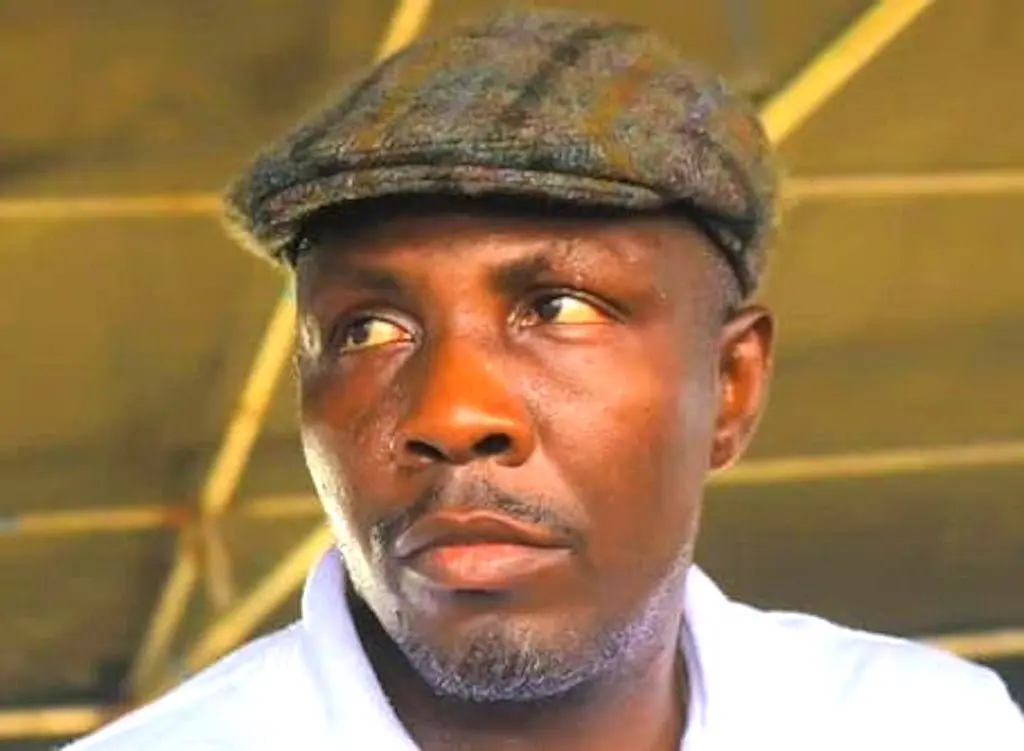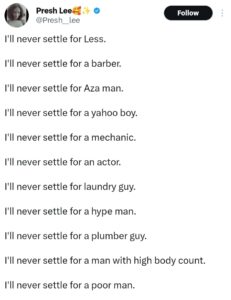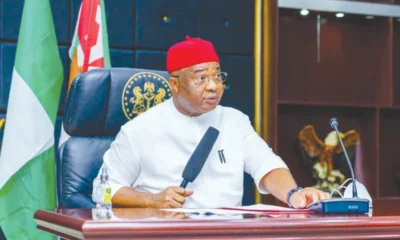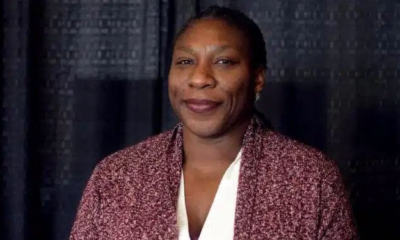News
Delta: Call Tompolo to order – Itsekiris cry to Tinubu, Oborevwori

Itsekiri people in Warri, Delta State have called on President Bola Tinubu, Governor, Sheriff Oborevwori and relevant security agencies to come to their aid, following alleged threat by the former leader of the Movement for the Emancipation of the Niger Delta, MEND, Oweizide Ekpemupolo also known as Tompolo and his people.
Communities allegedly affected by the threat include Ijaghala, Kantu, Obodo, Omadino, Ugborodo and other Itsekiri towns.
A stakeholder, who spoke on behalf of the Itsekiri people, Alex Oritsegbeyiwa Eyengho, in a Save Our Soul message to the government, alleged that there was an existential threat to his people in the hands of the Ijaws, particularly those of Gbaramatu, under the watch of Tompolo.
He said, “The urgent Save Our Souls cry is a cry borne out of Ijaghala and Kantu existential threat in the hands of the Ijaws, particularly those of Gbaramatu, under the watch of Tompolo.
”The death and arson threats reportedly issued to Ijaghala, Kantu, Obodo, Omadino, Ugborodo and other Itsekiri communities became intense recently when videos made by the Spokesman of Gbaramatu-Ijaw, Godspower Gbenekama and one other Ijaw youths began to trend on various social media platforms.
“The unacceptable gun-on-the-head reprieve conditions given by Tompolo and his gang to Kantu and Ijaghala communities is that the leadership of both communities should compulsorily address a press conference, where they must announce to the world that the Gbaramatu-Ijaw own both communities, failing which both communities shall be pulverized, sacked and the occupants killed!
“They have successfully got some Kantu people under duress to address the said press conference, and have fixed Friday, June 13, 2025, for the Ijaghala community to follow suit. Since the very unwilling Ijaghala community is next, there is palpable tension everywhere. I am not in doubt whatsoever of the capacity of Tompolo and his gang to carry out their threat against Ijaghala community.”
Eyengho also said, “During the wake of the endless fratricidal Warri crisis in the late 90s, Ijaghala community was the first community along the Escravos River to be completely pulverized and sacked by Tompolo and his Gbaramatu-Ijaw gang, and as such made indigenes and residents of the community to become internally displaced persons in Nigeria for over a decade. They did it before. They can do it again.
“A few years ago, the Ijaws did everything to enforce their burial culture on Ijaghala to the extent that they forcefully exhumed the corpse of my brother who was buried in the usual Itsekiri culture and reburied him in tandem with Ijaw burial culture! What could be more bizarre? The Ijaws have continued to use force of arms and intimidation from time to time on Ijaghala community as if the people are conquered!
“At some point, the leadership of Ijaghala community was pressurized to publish that the community wished to leave Mandagho Ward in Ugborodo federated communities and join Gbaramatu Ward allegedly as directed by their king Tompolo.
”Apparently, the Ijaws are vexed that Ijaghala was captured by INEC and other Government official documents as an Itsekiri Community. The community, of course, warded off the pressure.
“Our position has always been that the three(3) units currently in Ijaghala community are an integral part of Mandagho Ward in Ugborodo federated communities. We cannot exit this Ward for any reason and join Gbaramatu. If anything, we are pushing for a distinct Ward from our 3 units to be known as Ijaghala Ward.
Eyengho urged President Tinubu and Governor Oborevwori to call Tompolo to order and ensure he stops tormenting the people of Ijaghala and Kantu Communities with an alleged threat to forcefully evacuate and pulverize the communities if the leaderships refuse to abide by their “weird” and “insane” orders.
In a swift reaction, the National President of Ijaw People’s Development Initiative, IPDI, Comrade Austin Ozobo warned the Itsekiri people to be mindful of their utterances saying,”Tompolo does not have any gun to threaten anybody or community.” In a chat with Our Correspondent,Ozobo said the Kantu, Ijaghala and Omadino Communities as claimed by the Itsekiris belong to the Gbaramatu-Ijaw people. He said, the Itsekiri people learn to live in peace with their neighbours who accommodated them. According to Ozobo, said the Itsekiri people are customary tenants of the Ijaws. He emphasized that,”Ijaws are the landlords of the Itsekiri.”
Tompolo’s Media Consultant, Dr. Paul Bebenimibo in a reaction dismissed the allegations raised by the Itsekiri people.
News
Man in shock after lady he lodged with in a hotel in Abuja flees with his car and other valuables

A Nigerian man is currently in shock after a young lady identified as Precious Chinyere , whom he took to a hotel in the Asokoro area in the FCT for a romantic getaway allegedly fled with his car and other personal belongings on Thursday, February 5,
The distraught man and Precious had visited the hotel and opted for a short time stay. Things took a different in the evening when the man noticed Precious had left the hotel room without notifying him and took along with her some of his personal belongings including phones and laptop and also his car.
The victim immediately reported the incident to the police.
When contacted, the spokesperson of the FCT police command, SP Josephine Adeh, told LIB that the matter is currently being investigated and that efforts are being made to apprehend the suspect.
News
US Reacts As De@th Toll In Kwara Terror Attacks Hits 200

The United States Mission in Nigeria has condemned the k!lling of more than 200 civilians in recent attacks on communities in Kwara State.
Recall that terrorists launched de@dly attacks on Woro and Nuku communities in Kaiama Local Government Area of the state on Tuesday night, k!lling unsuspecting citizens.
It was gathered that the gunmen invaded the villages, opened fire on residents and burned homes.
According to reports, the de@th toll from the unfortunate incident hit 200 on Thursday night.
Reacting, the US Mission Nigeria condemned the k!lling via a post on its official X handle.
The post reads, “The United States condemns the horrific attack in Kwara state in Nigeria, which claimed the lives of more than 160 people, with the de@th toll still unconfirmed and many still unaccounted for.
“We express our deepest condolences to the families of those affected by this senseless violence.
“We welcome President Tinubu’s order to deploy security forces to protect villages in the area and his directive to federal and state officials to provide aid to the community and bring the perpetrators of this atrocity to justice.”
News
“I’ll never settle for a barber, yahoo boy or a poor man” — nail tech’s list of men she says she can’t marry sparks reactions online

A Nigerian nail technician has set social media talking after openly listing the kind of men she says she can never settle for.
In a now-viral post, she stated clearly that she refuses to “settle for less” and went on to mention professions and traits she considers a no-go area.
According to her, she can never settle for a barber, an aza man, a yahoo boy, a mechanic, an actor, a laundry man, a hype man, or a plumber. She also added that she wouldn’t marry a man with a high body count or a poor man.

-
Business1 year ago
US court acquits Air Peace boss, slams Mayfield $4000 fine
-

 Trending1 year ago
Trending1 year agoNYA demands release of ‘abducted’ Imo chairman, preaches good governance
-

 Politics1 year ago
Politics1 year agoMexico’s new president causes concern just weeks before the US elections
-

 Politics1 year ago
Politics1 year agoPutin invites 20 world leaders
-

 Politics1 year ago
Politics1 year agoRussia bans imports of agro-products from Kazakhstan after refusal to join BRICS
-
Entertainment1 year ago
Bobrisky falls ill in police custody, rushed to hospital
-
Entertainment1 year ago
Bobrisky transferred from Immigration to FCID, spends night behind bars
-
Education1 year ago
GOVERNOR FUBARA APPOINTS COUNCIL MEMBERS FOR KEN SARO-WIWA POLYTECHNIC BORI













